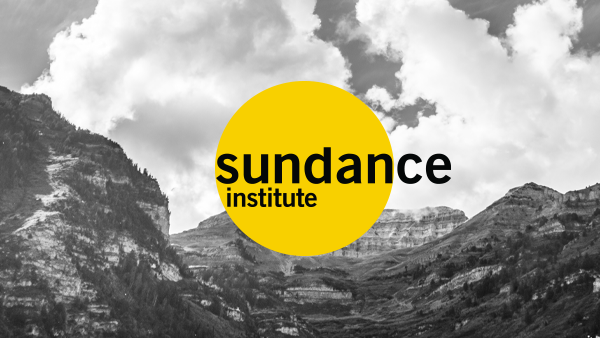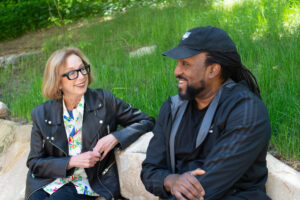Nic Dunlop, Julie LeBrocquy, Ricki Stern, and Annie Sundberg
While the release of Burmese freedom fighter Aung San Suu Kyi is celebrated all over the world, the struggle in Myanmar, Burma, continues. Despite the country’s first democratic elections in 20 years, the ruling military party continues to restrict press access within Burma.
Burma Soldier tells the story of Myo Mint, a former soldier turned peace activist, and will premiere this week at IDFA in Amsterdam. The film was given a development grant by the Sundance Institute Documentary Film Program. Filmmakers Nic Dunlop, Annie Sundberg, Ricki Stern, and Julie LeBrocquy recount efforts to “reverse pirate” a Burmese version of their documentary throughout the country in the weeks leading up to the election. This is their story…
As we sourced footage for Burma Soldier, we became aware of the big divide between local Burmese activists and activists who live in the free world where access to images and information is a given. Any independent media filmed or recorded inside Burma was being created at a huge personal risk to theactivists, and these activists took even bigger risks in smuggling it out of the country. We felt that as westerners, privileged with the luxury of free speech, we should do as Daw Aung San Suu Kyi once asked us: “Please use your liberty to promote ours.”
The subject of our film, Myo Myint, shares Aung San Suu Kyi’s goal: to achieve a peaceful path to democracy through dialogue. We felt that as we were combining Myo Myint’s powerful first-person story with visual evidence and other evidence provided by in-country witnesses, we needed to place the footage into a moving and coherent story with historical context.
While the story could inform westerners of Burma’s needs, a Burmese version circulated throughout the country might actually help Burma get on the path to peaceful change. Under the dictatorship, censorship and control of information has resulted in a population that is not only isolated from the outside world, but often from each other. This regime has used various forms of cultural racism to divide the country politically and psychologically.
Our hope with this film is that Myo Myint’s message and the historical accuracy of both the content of the film and the footage used to tell Myo Myint’s story will help educate Burmese about their country and their countrymen.
To that end, we are working with activist groups, including the Democratic Voice of Burma, to do a form of “reverse pirating” with this film. We stripped off all the credits and created a full Burmese language version of the film and have uploaded it to the internet where it is being broadcast via satellite. We are actively encouraging and aiding people to burn their own DVDs and VCDs to pass to friends and family. We are now working with the Nobel Women’s Initiative to try to get a copy of the film to Daw Aung San Suu Kyi.
Myo Myint has been thrilled to have a chance, as he said, to address the military and the soldiers once again. He spoke at a rally during the height of the 1988 uprising in Rangoon and his words then encouraged hundreds of soldiers to march—in uniform, side by side with the students and civilians who were leading the protests—in a remarkable show of defiance against the dictatorship.
We are hoping that Myo Myint’s message once again makes it to military members and their families, as it is Myo Myint’s goal to reach out to all sides in his lifelong quest for peace and a truly democratic government in Burma.
With the help of the Democratic Voice of Burma, the film is now reaching 5 million homes via satellite. Homemade DVDs of the Burmese version are being made by the hundreds and passed by hand to communities inside Burma, in refugee camps along the border with Thailand, and in Burmese refugee communities in the UK and here in the U.S. In Fort Wayne, Indiana, Myo Myint is using his local access television channel to update his refugee community on the elections, on the news of Aung San Suu Kyi’s release, and on the international media coverage of Burma.
The buzz on this reverse pirating has not yet reached the press, but it has reached the western campaigners and activists who in turn are reaching out to NGOs to carry in the Burmese version of the film. It is being slipped over the borders and gradually into all the ethnic states in Burma.
Making this film was truly a collective effort across international time zones—with Nic Dunlop in Thailand, Julie LeBrocquy in Dublin, and Annie and Ricki in the U.S. The thing we are most proud of as filmmakers with this project is that we never lost sight of Myo Myint’s mission. This film is dedicated to him, to his experiences, and to his continued work on behalf of his country.
Two years ago, Burma Soldier started with the help of a development grant from the Sundance Institute Documentary Film Program after producer Julie LeBrocquy introduced DFP director Cara Mertes to photographer Nic Dunlop, and the program got behind the film. We are extremely pleased to see recent events in Burma, and with this film.




